|
January 1, Catholics celebrate the Solemnity of Mary, Mother of God, one of the holy days of obligation in the Church. This celebration is a special way to celebrate Mary’s special role in God’s plan in the Christmas story, as well as a way to start the year full of grace, ready to tackle those New Year’s resolutions. Although the practice of New Year’s resolutions is not distinctly Christian, our resolutions gain a new significance when we attend to Mary’s story. Discern Your Resolutions The story of Mary’s call to motherhood is a paradigm of Biblical discernment. When Mary received Gabriel’s announcement, “She was greatly troubled at what was said and pondered what sort of greeting this might be” (Luke 1:29). In faith, Mary wrestles with God’s calling. Even after her great “Yes,” and giving birth, “Mary kept all these things, reflecting on them in her heart” (Luke 2:19), revealing she is still learning what her vocation means and how to live it. What’s this got to do with New Year’s resolutions? Discernment is a spiritual, prayerful decision-making process between possible courses of action. What specific habits or practices is God calling you to work on this year? There are plenty of worthwhile resolutions—there’s a million things I need work on—but it’s just not all possible to accomplish in a year, or ever. Prioritize resolutions that strengthen your personal vocation. Expect Without Expectations Mary’s faith is “expectant” but without “expectations.” In other words, Mary expects God to act in her life, but doesn’t place limitations on who, what, when, and where. Mary trusts the angel Gabriel’s words, “nothing will be impossible for God” and is free to live and say, “May it be done to me according to your word” (Luke 1:37-38). Maybe God will bring about the outcomes of your resolution through unexpected ways or people. That’s the way it often works in scripture and the lives of the Saints. When you give God permission to act on his terms, you are free to boldly expect that God will do new and great things in your life this year. Make Room For Others Even free from original sin, God uses other people to accomplish his plan in Mary’s life. Mary’s story was made possible through her reliance upon truthful friends and family. Her cousin Elizabeth speaks truth and hope into her situation (Luke 1:42), and her husband Joseph goes to heroic lengths to let God’s call come to fruition. Share your resolution with someone you trust. Whether it’s a major lifestyle change or not, ask them to keep you accountable, and always with prayer. Accountability also prevents goals from becoming purely self-centered or even idols from seeking God first (e.g., just to impress people at the beach). No one can accomplish your resolution for you, but you can find people to accomplish it with you. Resolve to Live the Truth Mary shows the true path by always making everything about Jesus. “Do whatever He tells you” (John 2:5). A true personal change will always lead us to more fully reflect our true identities as sons and daughters created in the image and likeness of God. But the truth is, sometimes resolutions are born of self-loathing or lies we’ve bought instead of the desire to more fully reflect God’s truth. This often happens with body or image-related resolutions; to be thinner, smarter, stronger, etc. While these aren’t de facto bad things, the tendency becomes seeking physical solutions for a spiritual or psychological wound that really needs healing. That’s why discernment with spiritual direction and honest accountability is vital. Exercise programs or supplements say we should consult a physician first- but it’s also true when it applies to spiritual exercises for our soul! Mary and the saints save us from spiritual self-medication, which close us off from the Divine Physician.
0 Comments
Each year, I look forward to attending Midnight Mass on Christmas. It is one of those Catholic "hallmarks" that helps us to ring in the celebration of Christmas. This year was no different, and I was able to assist at my Cathedral's celebration of Midnight Mass. As we continue on in the great octave of Christmas, I would like to look back on the readings and texts from the "Mass During the Night," more commonly known as Midnight Mass. “O God, [you] have made this most sacred night radiant with the splendor of the true light…” (Collect, Christmas Mass During the Night). Sometimes I scratch my head trying to make sense of the Collect prayer, the “opening prayer,” used during the Mass. The Collect prayer that we prayed during Midnight Mass, though, is quite fitting for this particular celebration of the Eucharist, as the Church throughout the world gathered together in the quiet stillness of the night to celebrate the birth of Jesus Christ, the “infant [found] wrapped in swaddling clothes and lying in a manger” (Lk 2:12). This “most sacred night” is indeed “radiant with the splendor of the true light," the light of Christ, the light that brightens not only the darkness of the night sky but also the darkness of our world, the darkness that often creeps its way into our own lives and our own hearts. “The people who walked in darkness have seen a great light” (Is 9:1)! When we find ourselves in a dark room, or when the sun begins to set at the end of the day, what do we do? We turn on a lamp; we turn on the lights. When we find ourselves in internal times of darkness, what do we do? We should turn to Jesus Christ, who, as we hear so beautifully articulated in the Proclamation of the Birth of Christ, is the “eternal God and Son of the eternal Father, desiring to consecrate the world by his most loving presence…” “The people who walked in darkness have seen a great light” (Is 9:1)! The words that the prophet Isaiah addressed to us in the first reading from this Mass are so filled with meaning for us, especially as we fumble and flounder in the darkness of our world and in our own lives. For upon us all, “a light has shone” (Is 9:1). We often walk in darkness: the darkness of our own worries and anxieties, the darkness of our own sins and shortcomings, the darkness of loneliness and isolation. Whatever burdens us, Isaiah invites us to be brought from darkness into God’s most marvelous light, which is found in the person of Jesus Christ. Isaiah tells us that “upon those who dwelt in the land of gloom a light has shone” (Is 9:1). The light that shone in the time of Isaiah is the same light that shone on the “shepherds in that region living in the fields and keeping the night watch over their flock” (Lk 2:8). As the shepherds were keeping watch, “the angel of the Lord appeared to them” (Lk 2:9). On that holy night in Bethlehem, only the humble shepherds were aware of the Word becoming flesh—of Jesus being born of the Virgin Mary. Today, the whole world knows of the Light of the World, Emmanuel—“God-is-with-us,” “Wonder-Counselor, God-Hero, Father-Forever, Prince of Peace” (Is 9:5)…our “savior Jesus Christ, who gave himself for us to deliver us from all lawlessness” (Ti 2:14), to deliver us and grant us peace and consolation from all that causes chaos or disorder or stress in our lives. “The people who walked in darkness have seen a great light” (Is 9:1)! Our Holy Father, Pope Francis, reflecting on these beautiful words, talks about light—the permeating theme of the great solemnity that we celebrate at Christmas. Our Holy Father says, “The people who walked–caught up in their activities and routines, amid their successes and failures, their worries and expectations–have seen a great light. The people who walked–with all their joys and hopes, their disappointments and regrets–have seen a great light. In every age, the People of God are called to contemplate this light. … A light meant to shine on every corner of this city, on our fellow citizens, on every part of our lives” (Homily of Pope Francis, 25 September 2015). “The people who walked in darkness have seen a great light” (Is 9:1)! As we continue to celebrate the great Nativity of the Lord—Christmas—we rejoice with Isaiah: “For a child is born to us, a son is given us; upon his shoulder dominion rests. They name him Wonder-Counselor, God-Hero, Father-Forever, Prince of Peace” (Is 9:5). The Psalmist invites us to “exult before the LORD, for he comes; for he comes to rule the earth. He shall rule the world with justice and the peoples with his constancy” (Ps 96: 13). The Lord is forever faithful. We are called to “[proclaim] the marvels of the Wonderful Counselor, the Mighty God, the Eternal Father, the Prince of Peace” (Homily of Pope Francis, 25 September 2015). We do this by serving as beacons of light amidst the darkness of our world, radiating the light, the “abundant joy” (Is 9:2), the love, the “blessed hope” (Ti 2:13) of Jesus Christ, proclaiming with “great rejoicing” (Is 9:2) the “good news of great joy” (Lk 2:10). “The people who walked in darkness have seen a great light” (Is 9:1)! “Let us all rejoice in the Lord, for our Savior has been born in the world. Today true peace has come down to us from heaven” (Entrance Antiphon). Let us join our hearts and voices this Christmas night and proclaim: “Glory to God in the highest and on earth peace to those on whom his favor rests” (Lk 2:14). “Silent night, holy night, wondrous star, lend thy light; with the angels let us sing, Alleluia to our King; Christ the Savior is born, Christ the Savior is born!” (Stille Nacht, Fr. Joseph Mohr) Of all the observations on the nature of life I have come across from the popular comic strip Peanuts by Charles Schulz, there is one which I have been touched by the most. In a recurring plot, the main character, a fellow named Charlie Brown, falls for a beautiful peer of his known only as “The Little Red-Haired Girl.” Just being in the same room as her makes poor ole Charlie Brown tremble as he is enamored by her incredible beauty, talent, and personality… three characteristics he cannot possibly boast of his own. One day, he finds a pencil of hers and, to his astonishment, finds that it is covered in her teeth marks. This odd observation immediately causes Charlie Brown to find new confidence to pursue her and make her notice him, triumphantly exclaiming, “She’s human!” Especially as we approach Christmas, this simple yet amazing truth reflects upon one of the cornerstones of our Faith: “the Word became flesh and dwelt among us” (Jn 1:14). How much more relatable is a God Who became human! Yet often we may forget this in light of His divinity, instead placing God on a high pedestal for us to approach and gaze upon but never quite reach. We may discourage ourselves with this thinking of authentic Christian living as merely lofty ideals and unreachable standards— “speech and day dreams” according to St. Vincent Pallotti. The question, then, “What is God really like?” is answered during an exchange between Jesus and His disciple Philip: “Lord, show us the Father and that will be enough for us,” (Jn 14:8) Philip asks, to which Jesus responds, “He who has seen me has seen the Father” (Jn 14:9). Not only do the emotions of Jesus reflect a necessary component of the image and likeness of God that each of us is made in, His emotions also reveal the nature of God. Believing that the written Word and the Living Word give us a trustworthy revelation of God, we know that God is in fact emotional. Jesus felt “compassion,” “pitied,” and was “deeply moved;” he was “angry,” “indignant,” and “consumed with zeal;” he was “troubled,” “greatly distressed,” “very sorrowful,” and “grieved;” he “sighed,” “wept,” “groaned,” and was “in agony;” he was “amazed;” he “rejoiced very greatly,” and was “full of joy;” he “greatly desired” and he “loved.” In our quest to be like Jesus, however, we often overlook his emotions. Jesus reveals what it means to be fully human and made in the image of God. His emotions reflect that Identity without any deficiency or distortion. When we compare our own emotional lives to His, we become aware of our need for a transformation of our emotions so that we can be fully human, as He is. Christmas reminds us of the incredible, baffling mystery of the Incarnation—God, the Creator of the universe humbled Himself by taking on human form! From the time Christ lay upon the wood of the manger through His expiration on the wood of the Cross, we see and are able to relate to not just the idealization of humanity, but how to endure life’s pains, sorrows, and tribulations, as well as its joys and triumphs. If we are the body of Christ, created and redeemed to represent Jesus in the world, then we, like St. Paul, need to “gaze upon him” and learn to reflect the emotions of Jesus (Hebrews 12:2). Then we can know Him, and in knowing Him know God, and know ourselves as we were created to be. May God bless you, and God love you! Have a blessed Advent and Christmas! For more resources to prepare you for Christmas, please click here. This resource and more resources for Christmas and Advent can be found here. "On this holy night, while we contemplate the Infant Jesus just born and placed in the manger, we are invited to reflect. How do we welcome the tenderness of God? Do I allow myself to be taken up by God, to be embraced by him, or do I prevent him from drawing close?" - Pope Francis (Christmas Homily, 2014) The past year has seen many moments that called out for the "tenderness of God." Challenging moments of war, suffering, natural disaster, and human-caused neglect - seemingly harsh, rather than tender. Some might use the harshness of the world as an excuse to move away from God or render God irrelevant. Yet, there is still a seeking in the human heart given by God who desires to embrace us and draw us close. When we look at the scene of the Nativity, do we see the tenderness of God in the midst of the harsh reality that Mary and Joseph were not shown tenderness in their need, but instead were rejected? The Son of God came into the world in poverty. At the end of his earthly life, he was rejected once again. The Father, though, continued to show mercy, love, and tenderness by raising him up, opening the way to salvation, and leaving us a share in Christ's mission of love and mercy until he comes again. During this Jubilee of Mercy and beyond, may we go about doing Christ's mission well through living tenderness, reviving faith, rekindling charity - living the corporal and spiritual works of mercy. These works of mercy are practical ways for us to welcome and share the "tenderness of God." On behalf of the board, staff, collaborators, and advisors of the Catholic Apostolate Center, may you have a Blessed Christmas and a good New Year! You will be remembered by me at Masses during the Christmas season! May the charity of Christ urge us on!
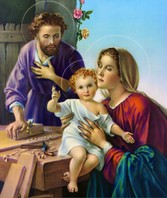 Christmas is on Friday. Wait, really?! Have we bought all of our presents? Are we ready for a Christmas feast? Is work ever going to end? These are the thoughts that plague us right now, but what we really should be asking is: are we ready for the birth of Christ? Advent is almost over - was there really enough time to prepare for the birth of the Son of God? The short is answer is 'no,' and the long answer is still 'no.’ But we know that as we prepare each liturgical year we take another step on the long journey toward Christ. Each celebration gives us the chance to refocus on that journey and draws us back into living out our faith wholly and fully. Who better to help us refocus our sight on Christ than the Holy Family? The Holy Family is the PERFECT example for us as we share in similar struggles. Through the Incarnation, Jesus became man and we believe him to be both fully human and fully divine. In a beautiful way his humanity is formed by Mary and Joseph. Who better to relate to then Mary and Joseph themselves? They were there when they thought Jesus was lost in the temple and there throughout his adolescence. Mary was there to inspire him to begin his ministry at Cana and was there as her son gave up his life for us. During Advent and Christmas we are watching Mary, Joseph, and Jesus grow and become a family. We should take this opportunity to allow ourselves to walk in their footsteps and live a life wholly committed to Christ. We should take this opportunity to ask for their intercession and assistance on our journey to God. Please do not think that their example only applies to families! Their example applies to each and every Catholic, Christian, non-Christian, and human being. The virtues that they live in the Bible are virtues that we should all be living. Look to how Mary and Joseph interact and form Jesus and open yourself up to them. No matter where we are in life we can learn from their unwavering commitment and their steadfast love. I challenge you to think about someone in your life who embodies these qualities: “unwavering commitment” and “steadfast love.” I only have to think back to last week at my father-in-law’s funeral. My wife was delivering the eulogy and said, “[he] reminded me of the importance of the ‘virtue of selfishness,’ as he so called it. This means that you can take control of how you feel, and you must take care of yourself so that you can take care of others. If you have nothing to give, what then are you authentically giving?” He got it. He understood that God is calling us to form ourselves in our faith, to root ourselves in him because we cannot lead others to God without first opening ourselves to his grace. How do we do this? We commit ourselves to Christ with steadfast love. This Advent, as we are preparing for the birth of Christ, let us remember to ground ourselves in his love so that as the new year comes we can go out and evangelize the world. Let us also remember Saint Pope John Paul II’s words on the Holy Family: “I wish to invoke the protection of the Holy Family of Nazareth…it is therefore the prototype and example for all Christian families…St. Joseph was a “just man”…may he always guard, protect and enlighten families. May the Virgin Mary, who is the Mother of the Church, also be the Mother of “the Church of the home”…May Christ the Lord, the Universal King, the King of Families, be present in every Christian home as He was at Cana, bestowing light, joy, serenity, and strength”. Nicholas Shields is a young professional working in Washington, DC.
You don’t need to spend a dime to understand Christmas is all about presence. The Church sings, “Emmanuel- God is with us!” God’s gift to the world is his presence, Jesus our Savior. During the holidays, however, life tends to get busy and expensive. Presence yields to presents. When this happens, as it always seems to, I think of Brother Lawrence. Like the great mystic and reformer, St. John of the Cross, Lawrence (1605-91) was a Carmelite monk. But unlike St. John, Lawrence was a lay brother who spent his “unremarkable” life cooking and cleaning. In fact, all that remains are some recollected conversations and a few scattered letters posthumously compiled by another monk into a short, now classic, spiritual work called The Practice of the Presence of God. His conversion happened one winter after “seeing a tree stripped of its leaves, and considering that within a little time the leaves would be renewed, and after that the flowers and fruit appear” (First Conversation) We need Brother Lawrence to remind us that Christmas is all about presence. For Lawrence, this means having a sense of God’s love in the middle of our busy and distracted lives during the Christmas season, a way of “doing our common business purely for the love of God” (Fourth Conversation). He reminds us to be about God’s business during our busyness. Three of Brother Lawrence’s key insights can help us practice the presence of God this Christmas. Give Your Time Christmas is more about being present than buying presents. The most precious gift we have to give someone is our time. As Christmas gets piled high with shopping, decorating, work, or final exams, the gift of time seems to have the highest price tag. Brother Lawrence reminds us that God is present to us in all times and places: "The time of business does not with me differ from the time of prayer; and in the noise and clatter of my kitchen, while several persons are at the same time calling for different things, I possess God in as great tranquility as if I were upon my knees before the Blessed Sacrament.” (Fourth Conversation) The Nativity celebrates the presence of God on earth, a God who came as an unexpected, untimely, and therefore unwelcome stranger. I think we all know people like that! Being present to God may mean letting ourselves be interrupted or making time for a family member we’d rather ignore, and letting God speak. Celebrate Small Things When we think Christmas, we think miracles. But the great mystery of the Incarnation reveals that God also shows his human face in the smallest, most mundane aspects of life. Brother Lawrence says: “We can do little things for God. I turn the cake that is frying on the pan for love of him . . . who has given me grace to work . . . It is enough for me to pick up but a straw from the ground for the love of God" (The Practice of the Presence of God and The Spiritual Maxims). Brother Lawrence points to the presence of God hidden even among life’s most unpresentable circumstances by faithfully doing unglamorous things for God’s glory. Celebrate Symbols It’s tempting to scoff at the more trivialized or sanitized secular symbols of “the holidays.” Rather than spending Christmas railing against materialism, we can imitate the example of Brother Lawrence, who presents a more constructive, creative way to counteract the consumer culture without pointing out other’s shortcomings. Brother Lawrence would turn everyday objects (like pots and pans) into an occasion to praise God. He did this by making them into little actionable reminders. For example, when you see Christmas lights, say, “Christ is my light.” Or pass a snowman and pray for a friend in need. In this way, we “re-symbolize” the world around us. There are a million possibilities. Come up with a few of your own and make it a habit. Especially at Christmas, the whole world is a reminder of God’s love and presence. All of creation is a conversation starter with God, a conversation called prayer, or as Brother Lawrence would say, “the practice of the presence of God.” For more ways to prepare for the coming of the Savior this Advent and Christmas, please visit our Advent Resources page. Advent, the word in and of itself instills hope and builds anticipation for greatness, joy and peace. What is it are we waiting for? It seems with the close of the year, we wait anxiously for those intimate times with our family and friends, a break from work and the routine and a time for closeness. Maybe, we are waiting for a Christmas party, presents and the holiday ambience. As a student, I always find it paradoxical that finals would be during the season of Advent. The hectic study and preparation of exams easily muddles the preparation I could be doing in my own heart for the King. The anticipation, the excess and busyness I find myself in reminds me of the Gospel story where the disciples forget the presence of the Lord in their midst: “And behold, there arose a great storm on the sea, so that the boat was being swamped by the waves; but [Jesus] was asleep. And they went and woke him, saying, ‘Save us Lord; we are perishing.’ And he said to them, ‘Why are you afraid, O men of little faith?’ Then he rose and rebuked the winds and the sea; and there was a great calm” (Matthew 8:23-26). Looking without eyes of faith, the disciples found themselves in a panic and disarray. With a focus on the storm and on the circumstance that assailed them, the disciples forgot the most essential truth that was right there with them on the boat: the Sleeping Christ. The answer to their cries for help was peacefully present in their situation ready to grace them with a great calm. What is it, again, that we are waiting for during this Advent Season? The gift we are waiting for is the sleeping babe, the sleeping Christ, in the manger. The Divine Son, who humbles Himself so greatly that He arrives in the stillness of night, in the quiet with shepherds and sheep alike. The Creator God comes in the stillness. What we are waiting for is the Prince of Peace. My own hurriedness in finishing all of my papers and exams, finding the perfect gifts for my friends and family, making travel plans and somehow finding time to stop and recognize where I am headed resembles the experience of the disciples. I am awaiting His peace, but my actions reveal otherwise. I must intentionally make the effort to stop and breathe in what I am truly searching for this December. May the anticipation throughout this Advent season bring us to stop and ponder the mystery of the Lord of the Universe resting in a manger who has come to encounter our hearts. May the peace of the Sleeping Christ invade our hearts, our minds, and our actions so we too may accept the true gift He wishes for us all this season: a great calm (Matthew 8:26). This Saturday, December 12th, is the Feast of Our Lady of Guadalupe. Some know the story of how Our Lady appeared to St. Juan Diego and asked him to build a church in the spot she appeared. Juan Diego then went to the bishop and presented, as proof of the apparition, beautiful flowers that Our Lady had given him in the middle of the winter. When Juan Diego opened his tilma to show the bishop, the tilma had an incredible image of Our Lady on it - just as Juan Diego had described. Our Mother’s mission was to show compassion on her children so that those who interceded for help could receive peace in their hearts and find solace in their troubles.
When I was in high school, my family began praying the Rosary together with a portable shrine that circulated around our parish community of Our Lady of Guadalupe, called the “Pilgrim Queen” of the Family. We had a certain time each month to host and guard Mary - praying for our parish, the diocese and bishop, and all families. While she was under our care, we prayed the Rosary each day and when our time was up, another family had the honor of hosting Our Lady. Looking back, I think it was because of those years that we hosted Mary and prayed the Rosary together, my family experienced deep peace. Mary’s compassion was at full force in the Kirby house! In this Extraordinary Jubilee of Mercy, Pope Francis has called Catholics to show mercy to others with Works of Mercy and become an effective source of God’s love and compassion for each other by learning from Christ’s example. We can learn from Jesus and his Mother about how to live out mercy and compassion by clothing the naked and feeding the hungry, counseling the doubtful and forgiving offenses, to name a few. Within our own homes there can be difficulties and affliction that may seem unbearable at times. When that happens, I invite you and your family to pray the Rosary. When life is at stake or danger is imminent, pray the Rosary. If life is desolate and despair creeps in, pray the Rosary. At any time, in any place, with anyone - pray the Rosary. Mary is on our side. She is our Mother and loves us and wants us to be consoled. She will never abandon us. Blessed John Henry Newman was enamored by the beauty and meaning to Our Lady’s apparition at Guadalupe. He wrote the poem, “The Pilgrim Queen,” to help people and families better understand the meaning behind the portrait that he describes, which you can find below. “The Pilgrim Queen” by Blessed John Henry Newman There sat a Lady all on the ground, Rays of the morning circled her round, Save thee, and hail to thee, Gracious and Fair, In the chill twilight what wouldst thou there? 'Here I sit desolate,' sweetly said she, 'Though I'm a queen, and my name is Marie: Robbers have rifled my garden and store, Foes they have stolen my heir from my bower. 'They said they could keep Him far better than I, In a palace all His, planted deep and raised high. 'Twas a palace of ice, hard and cold as were they, And when summer came, it all melted away. 'Next would they barter Him, Him the Supreme, For the spice of the desert, and gold of the stream; And me they bid wander in weeds and alone, In this green merry land which once was my own.' I look'd on that Lady, and out from her eyes Came the deep glowing blue of Italy's skies; And she raised up her head and she smiled, as a Queen On the day of her crowning, so bland and serene. 'A moment,' she said, 'and the dead shall revive; The giants are failing, the Saints are alive; I am coming to rescue my home and my reign, And Peter and Philip are close in my train.” Our Lady of Guadalupe, Mother of God, Patroness of the Americas, pray for us! To learn more about the Rosary, please visit our Prayer and Catechesis resource page. “We declare, pronounce, and define that the doctrine which holds that the most Blessed Virgin Mary, in the first instance of her conception, by a singular grace and privilege granted by Almighty God, in view of the merits of Jesus Christ, the Savior of the human race, was preserved free from all stain of original sin, is a doctrine revealed by God and therefore to be believed firmly and constantly by all the faithful” (Pius IX. Ineffabilis Deus).
With these words, Pope Pius IX declared ex cathedra the doctrine of the Immaculate Conception; only twice in recent history has this occurred (the other being Pius XII’s declaration on the Assumption). For centuries, the faithful have commemorated the belief that Mary, from the moment of her conception, by a loving act of God, was free from sin. This, of course, does not mean that Mary was exempt in some way from Jesus’ redemption of humanity. Rather, as Blessed John Duns Scotus put it, she acquired the greatest of redemptions through her special role in Salvation History (Lectura III Sent., 119). Many who do not agree with the doctrine argue that if Mary was not born with Original Sin or did not sin at any point in her entire life (as Church teaching proclaims), then she could not have been fully human. Therefore, if the Blessed Mother had never been born into sin and never sinned in her life, how could she have been truly human? Some reason, how could she have experienced what humanity really goes through if she didn’t live with sin? Basically, how could she have been truly free to be a person, struggling with the temptations, the ups and the downs, the “messiness” that is life? The concept of a sinless life, to many, seems boring and totally reliant on some higher being. How can one be totally dependent on God’s love? In one of his earliest homilies as Pope, Benedict XVI answered these questions quite definitively. He stated, “The human being lives in the suspicion that God's love creates a dependence and that he must rid himself of this dependency if he is to be fully himself.” Indeed, many of us feel reluctant to fully give in to the love and mercy of God for fear that we would be giving up our ability to choose to be whomever we want to be. In that case, we rely not on God’s love, but on our own powers and abilities. This may sound preferable to some, but the Pope-Emeritus reminds us, “Love is not dependence but a gift that makes us live. The freedom of a human being is the freedom of a limited being, and therefore is itself limited.” Our knowledge and abilities as humans are but a speck in comparison to God’s love. Therefore, in choosing not to live in accordance with what is right and true, we actually limit ourselves from fully living. Mary, the Immaculate Conception, is the prime example of total abandonment to God’s love – she is truly free. Though she was sinless throughout her life, Mary still faced the temptation to sin. However, because she lived in complete openness to the Lord’s will, Mary did not choose sin, but rather, chose God. In his homily, Benedict notes, “The closer a person is to God, the closer he is to people…The fact that she is totally with God is the reason why she is so close to human beings.” Sinless, she was the pure vessel, the new Ark of the Covenant, through which “the Word was made flesh and dwelt among us” (John 1:14) She is the mother of God, and thus, the mother of Love itself, for God is Love. (cf 1 Jn 4:8) Living in that love, she calls out to us: “Have the courage to dare with God! Try it! Do not be afraid of him! Have the courage to risk with faith! Have the courage to risk with goodness!...so that your life will become broad and light, not boring but filled with infinite surprises, for God's infinite goodness is never depleted!” Today, on the Solemnity of the Immaculate Conception, Pope Francis has proclaimed the opening of the Extraordinary Jubilee of Mercy. Please visit our Year of Mercy resources by clicking here. Victor David is a collaborator with the Catholic Apostolate Center and a staff member at The Catholic University of America in Washington, DC. Beginning Tuesday, December 8th , the Catholic Church will begin to celebrate the Extraordinary Jubilee of Mercy. Throughout the 2016 liturgical year, the Church around the world is participating in, celebrating, contemplating, and commemorating God’s mercy in our lives. Pope Francis in his papal bull, Misericordiae Vultus, discusses what the Jubilee should look like: “We need constantly to contemplate the mystery of mercy. It is a wellspring of joy, serenity, and peace. Our salvation depends on it. Mercy: the word reveals the very mystery of the Most Holy Trinity. Mercy: the ultimate and supreme act by which God comes to meet us. Mercy: the fundamental law that dwells in the heart of every person who looks sincerely into the eyes of his brothers and sisters on the path of life. Mercy: the bridge that connects God and man, opening our hearts to the hope of being loved forever despite our sinfulness. At times we are called to gaze even more attentively on mercy so that we may become a more effective sign of the Father’s action in our lives. For this reason I have proclaimed an Extraordinary Jubilee of Mercy as a special time for the Church, a time when the witness of believers might grow stronger and more effective.” What is happening from December 8, 2015 to November 20, 2016 during the Jubilee? Beginning on the feast of the Immaculate Conception, Pope Francis will open up the holy door of St. Peter’s Basilica and allow all who enter to receive a plenary indulgence for their pilgrimage to the site. Pope Francis has emphasized the wish for individual dioceses by the power of the local bishops around the world to open their designated holy doors, in a sign of solidarity and universal pilgrimage for all people to attend and receive this grace. During the Jubilee Year, Pope Francis has called all of us to place special emphasis on understanding Christ’s mercy and how we can show that mercy to others. For myself, I will try to put special emphasis on what it means to show mercy by using the Corporal and Spiritual Works of Mercy as a guide throughout 2016. The Works of Mercy have always served as a good way of measuring what I am called to do as a Catholic. Throughout the year, I would like to commit to praying for others in addition to my family, friends, and myself. I would like to pray especially for those I do not know: the imprisoned, the homeless, and those suffering in silence—that all may know of the mercy of God. Even though I am a volunteer catechist at my local parish, I still want to try to incorporate more works of mercy into my life. As much as it may help others, it ultimately provides me an opportunity to express my faith and learn and grow in my appreciation of God. In simple acts of charity, such as donating platelets frequently for those who are victims of cancers and accidents in my local area, I hope to express the understanding of mercy that we are trying to emphasize during the upcoming Jubilee of Mercy. It is my hope that this year you and your family will take an intentional step to incorporate the Works of Mercy into your family prayer life and live more fully the mission of Christ in the world today.
|
Details
Archives
July 2024
Categories
All
|
About |
Media |
© COPYRIGHT 2024 | ALL RIGHTS RESERVED

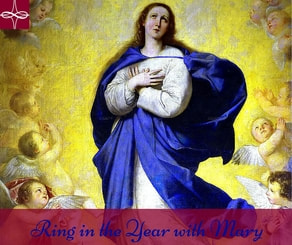

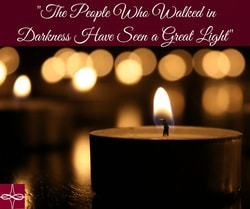

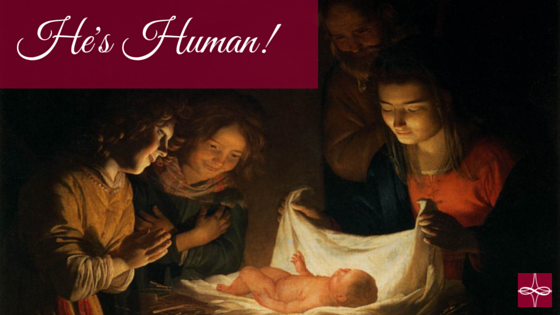

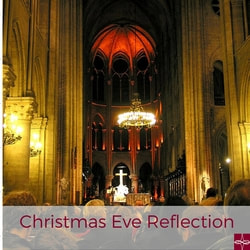
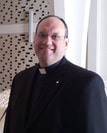
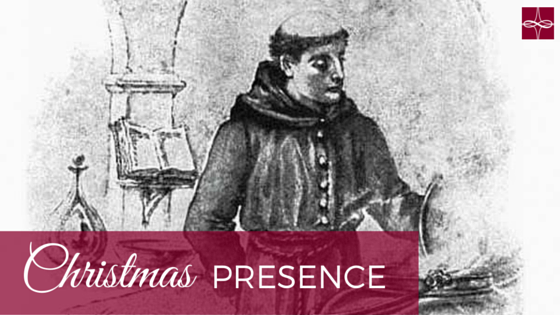

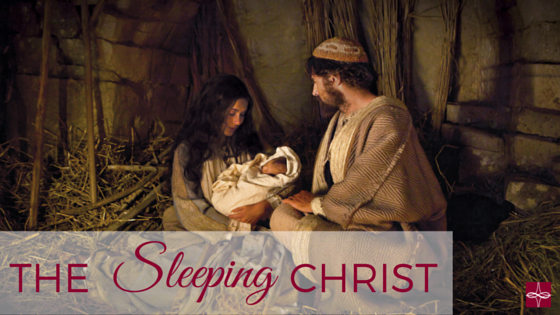

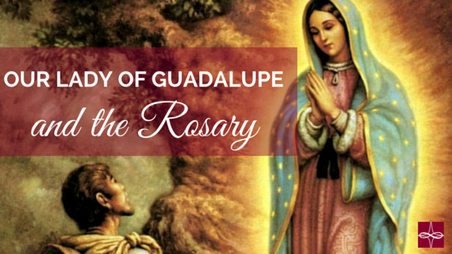

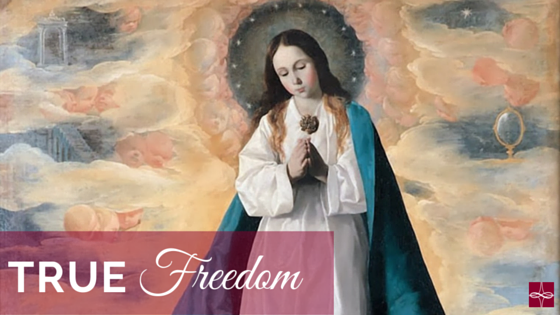
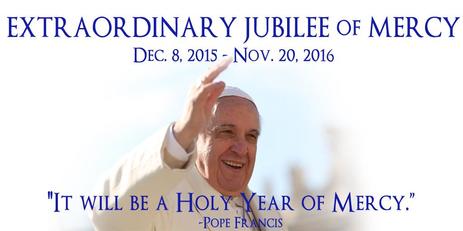

 RSS Feed
RSS Feed